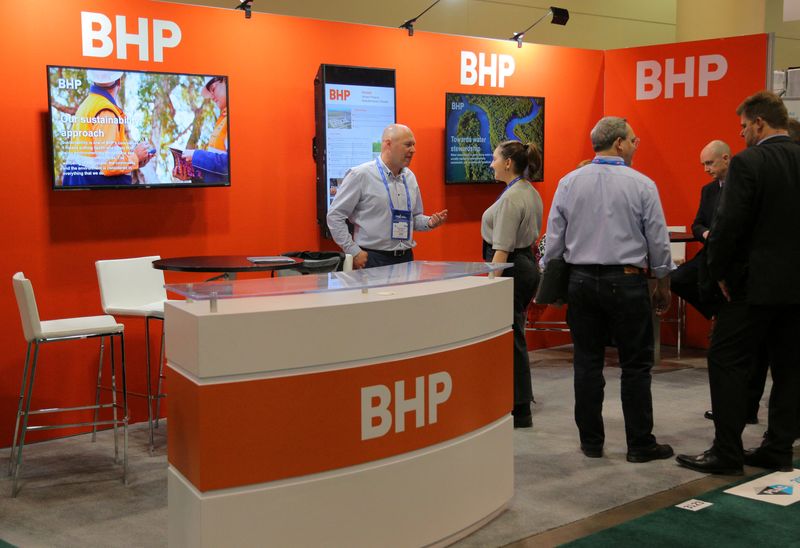By Indranil Sarkar and Shashwat Awasthi
(Reuters) -Mining giant BHP Group (NYSE:BHP) on Wednesday joined rival Rio Tinto (NYSE:RIO) in warning of further disruptions from COVID-19, including labour shortages, and said the impact of the Omicron variant will last into the second half of its financial year.
BHP said the proposed easing of border restrictions in Western Australia on Feb. 5 may also cause some short-term disruption to the operating environment as the pandemic evolves in the state.
The mineral-rich state has maintained a hard-line on border controls during the pandemic, while a surge of Omicron cases across Australia has caused a dearth of workers in mines as well as train drivers to transport millions of tonnes of commodities.
With the country in the grip of an Omicron wave, BHP's production of some commodities fell in the December quarter. Labour constraints and wet weather also forced the global miner to cut its annual forecast for metallurgical coal.
"Workforce absenteeism arising from the COVID-19 Omicron variant is anticipated to continue into the early part of the second half of the 2022 financial year," the company said.
Rio Tinto forecast slightly weaker-than-expected 2022 iron ore shipments on Tuesday, partly due to tight labour market conditions.
Still, BHP's second-quarter iron ore production from Western Australia rose 5% to 73.9 million tonnes, helped by strong performance at its Jimblebar mine and ramped up production at its $3.6-billion South Flank project.
"With iron ore driving so much of the cash flow, the impact from today's result should be relatively muted considering the relative strength there will likely help to offset downgrades elsewhere," RBC Capital Markets analyst Kaan Peker said.

BHP shareholders are set to vote on Thursday on whether to unify its structure, bringing its dual-listing in London within a single Australia-listed company.
The miner's shares were flat by 0335 GMT, while the broader market fell 0.9%.